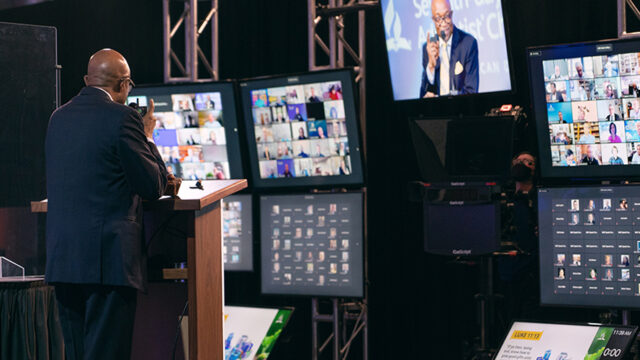Adventist Church defends its stand as a way of preserving its mission and identity.

On October 2, 2024, with the help of the Becket Fund for Religious Liberty, the General Conference of Seventh-day Adventists (GC) and Adventist Risk Management (ARM) filed a complaint in the U.S. District Court for the District of Maryland (GC v. Horton) to ensure that the Seventh-day Adventist Church can continue to hire only those who embrace its religious beliefs.
A recent change to Maryland law threatens this freedom by forcing the General Conference to hire employees who might disagree with the church’s faith and religious mission. In the following interview, GC associate general counsel Todd McFarland clarifies how this change in the State of Maryland law would disrupt the church’s long-held beliefs and undermine its religious exercise.
How did the church become aware of this issue?
We first became aware of this issue following the Maryland Supreme Court’s decision in Doe v. Catholic Relief Services, which reinterpreted the Maryland Fair Employment Practices Act. This reinterpretation significantly narrowed the religious exemption that had previously allowed Seventh-day Adventist organizations to hire only those who share our faith.
Why did the church file this lawsuit?
It is essential for the church to be able to hire individuals who share our faith and support our religious mission, regardless of their role. However, the new interpretation of Maryland law suggests that only employees who directly advance the church’s core mission can be hired based on shared beliefs. This ambiguity could lead to courts or government officials deciding which roles they consider “religious enough” to qualify for the exemption. We believe that every employee, including those who indirectly support our religious ministries, has an important role to play in advancing our mission. But now, Maryland law requires us to hire some employees who might be opposed to our religious mission and beliefs. This threatens our ability to advance our global mission of sharing the healing message of Jesus.
How did the church come to this decision?
We came to the decision after much prayer and consultation. Church leaders also spoke with all Maryland Adventist employers to gauge their perspectives. Ultimately, the leadership of the General Conference and the North American Division jointly agreed to move forward with legal action. The General Conference Administrative Committee and Adventist Risk Management boards also approved the lawsuit. Our goal is to help all Adventist employers, not just in Maryland but nationwide.
Some secular news outlets have described this as the church asking for the “right to fire LGBTQ employees.” Is that right?
No, that is not an accurate characterization. This lawsuit is about the church’s right to hire individuals who align with our religious mission. Working for a church involves different expectations than working for a secular organization. For a church to fulfill its mission effectively, it must have the freedom to hire those who share its core beliefs. Maryland law has protected this commonsense principle for almost 25 years. This is why the General Conference and Adventist Risk Management consider whether a prospective employee is a member of the church in regular standing as part of their hiring processes.
What are the next steps?
In early October we filed a complaint and a motion for a preliminary injunction in federal court. We are waiting for the court to schedule a hearing on that motion, which should be in the next few months. After the hearing we expect the judge to rule, deciding whether the U.S. Constitution protects the church’s ability to hire only those who share our faith and religious mission.
The original version of this interview was posted on ANN.








